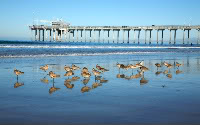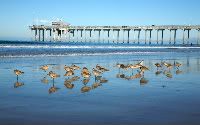Algae as Biofuel and Protein Source


Fortunately, it’s deeply rewarding work. The interview in question was conducted a couple of months ago with the Scripps Institution’s Dr. Greg Mitchell, one of the world’s most well-respected researchers on algae. The process of reviewing his thoughts on the biology and economics surrounding the subject was a learning experience, and it re-enforced some of the themes that were common to a great number of these conversations.
In particular, the single most frequently voiced point is the lack of congruity between our political imperatives and our true needs as a civilization. For something to make sense to a politician, it needs to show demonstrable results in 2 – 3 years; if it doesn’t, he’ll be looking for another job. By contrast, most of the changes that we need to make as a society require a longer-term focus — at least 10, and in some cases 20+ years.
And algae may be the textbook example. Algae and cyanobacteria (photosynthetic bacteria) produce biomass 10 – 50 times more efficiently than any terrestrial plant: corn, soy beans, etc. If you look at the economics of algae, you’re going to get almost 40% biofuel molecules from the original biomass. And what’s the other half or so? It’s protein — that can be used to feed animals far for efficiently that the way we’re going about it today. The whole subject shows incredible promise.
But where are the jobs — today — for algae? How long would a politician last who suggested diverting funds into an area that didn’t offer massive amounts of employment in the very short term — especially in his home state?
It’s a very difficult situation, which, to me, gets back to campaign finance reform. Until we have leaders who can do what they think is right, we’ll continue to have boondoggles like bridges-to-nowhere, corn ethanol and other obvious rip-offs.
